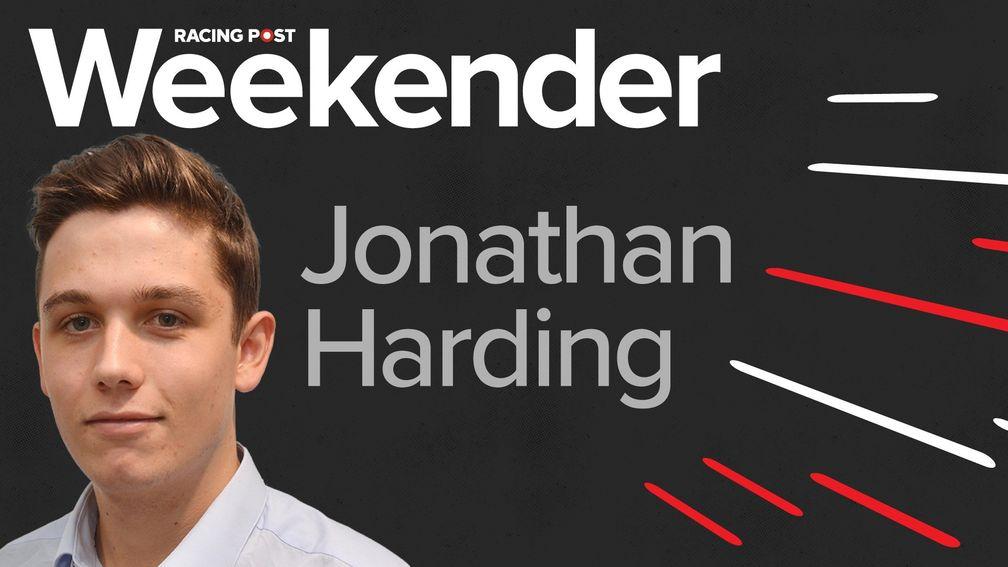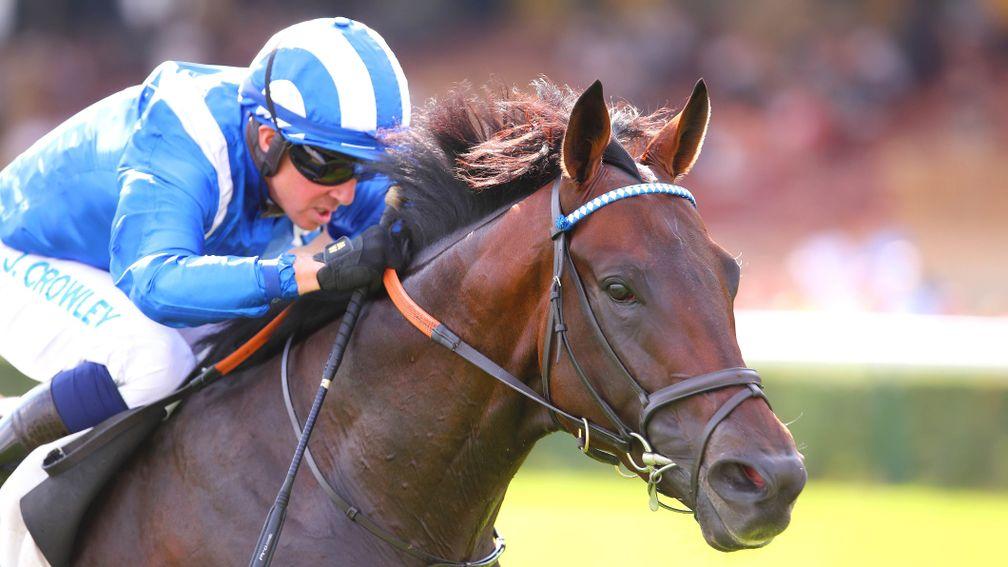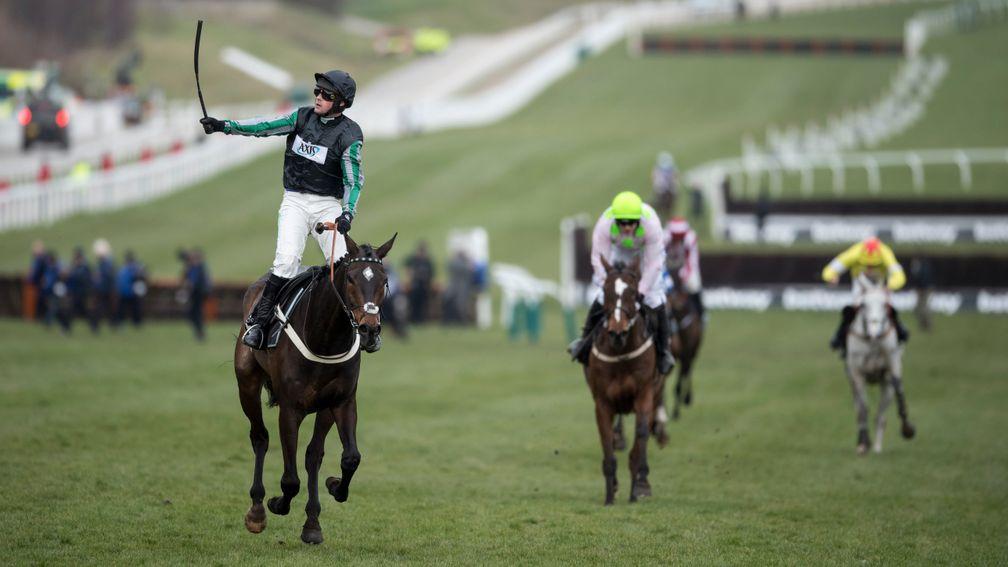Shadwell cutbacks a reminder of how heavily racing relies on big benefactors

Shadwell's announcement that it plans to sell a significant number of horses was clearly not unexpected following the death of its founder Hamdan Al Maktoum, but it is nonetheless an alarming development.
The global reorganisation of one of the largest bloodstock empires ever created will begin with the sale of a "substantial" volume of its stock and it remains unclear how it will approach yearling purchases.
To put this into context, Shadwell has run more than 165 individual horses in Britain this year, 25 in Ireland and 30 in France, as well as others in countries such as the UAE and US – which is why the use of the word substantial understandably feels so ominous for the sport.
Still, it is not all bad news and this is far from the end for Shadwell. In last week's statement, Shadwell reiterated that Sheikh Hamdan's family, chiefly his daughter Sheikha Hissa bint Hamdan Al Maktoum, were committed to supporting the sport for "many years to come".
The statement explained the need to contract the business stemmed from a long-term desire to operate on a more sustainable footing and explained there would be a sharper focus on top-level racing.
That will clearly come as welcome news for the staff, jockeys and trainers who rely on the leading owner-breeders, as well as the vast supply chains that contribute to the success of such a major outfit.

But the sad reality is we will see those famous blue and white silks less frequently on our racecourses than in the last few decades, and the necessity for Shadwell to trim its operation raises an important question: how would British racing cope without its big benefactors?
It would be fair to say organisations such as Shadwell, Godolphin and Juddmonte, whose founder Khalid Abdullah died this year, are partly run as businesses but were originally created as a passion by their founders, whose immense wealth maintained their investment.
They are the linchpins of their organisation and British racing has been lucky to rely on their commitment, but when they are no longer around difficult decisions may have to be made about how the businesses function, presumably with a less secure income source.
With this in mind, the proposed cutbacks at Shadwell remind us of the fragility of a funding model so reliant on the generosity of a handful of individuals. Therefore, ensuring racing remains financially viable and an attractive proposition must be the sport's top priority.
Of course, there will always be other top owners, but buying horses is not getting any cheaper and, while a passion for the sport may be enough to sustain owners for whom money is no object, finances will play a significant role in British racing's ability to attract new owners.
Just as it is uncertain what the future holds for Shadwell, it is unclear what British racing would look like without the continued investment of similarly major operations and their founders. It is imperative to the long-term prosperity of the sport that it prepares for this day.
Fond farewell to chasing royalty
The standout memory from my reporting debut at the Cheltenham Festival in 2018 was Altior making typically light work of the hill to land his breakthrough Champion Chase by seven lengths from Min.
As a fresh-faced journalist taking his first steps in the industry, I felt a sense of vindication watching this electric and seemingly invincible chaser recover from his customary flat spot to win so impressively – this was elite sport at its best and I felt lucky to be in the front row.
It may sound a little disingenuous but there was so much more to the Altior story than his 19-race unbeaten streak, although it was the highlight of a memorable career that drew to a close this month.
For me, his legacy is less about the bare numbers than the manner of his performances and there were few finer sights than watching him jump into the lead in front of his adoring and expectant fans.

His was a tale of two halves and after losing his unbeaten streak in a brutal encounter with Cyrname in November 2019, he frustratingly ran only three more times, winning once, and sadly missed out on the last two Cheltenham Festivals due to minor, untimely setbacks.
The memory of that run at Ascot, where he was stepped up in trip on testing ground, seemed to haunt trainer Nicky Henderson, who had to walk the line between what he believed to be the best interests of the horse and the demands of a public desperate to watch him run.
This meant Altior was never far from controversy towards the end of his career, which is a monumental shame given his achievements, and even his retirement sparked a debate on Twitter, although disagreement between racing fans on social media is not uncommon.
There is no worse sight in sport than a champion going on for too long but there will always be a niggling doubt that he still had more to give, especially after he showed flashes of his old brilliance when second in the Grade 1 Celebration Chase on his final start in April.
Of course, we will never know what he could have achieved but we can still be certain of one thing: few horses in recent years have provided us with more excitement, and heartache, than Altior.
The Weekender is out every Wednesday and is available at all good stores. You can also download the edition from 9pm on Tuesday evening
Published on 22 September 2021inComment
Last updated 17:21, 21 September 2021
- The whole shape of the Irish Flat season is being defined by one man only - and even his main targets lie elsewhere
- Analysis: Flutter and 888 have enjoyed contrasting fortunes but they still have things in common
- Only a baby step but an important one if racing is to keep some of its David v Goliath moments
- There are so many great betting opportunities on Saturday - here are my best bets including a very strong Curragh fancy
- Coolmore and Godolphin spare the sport some embarrassment - and not for the first time
- The whole shape of the Irish Flat season is being defined by one man only - and even his main targets lie elsewhere
- Analysis: Flutter and 888 have enjoyed contrasting fortunes but they still have things in common
- Only a baby step but an important one if racing is to keep some of its David v Goliath moments
- There are so many great betting opportunities on Saturday - here are my best bets including a very strong Curragh fancy
- Coolmore and Godolphin spare the sport some embarrassment - and not for the first time